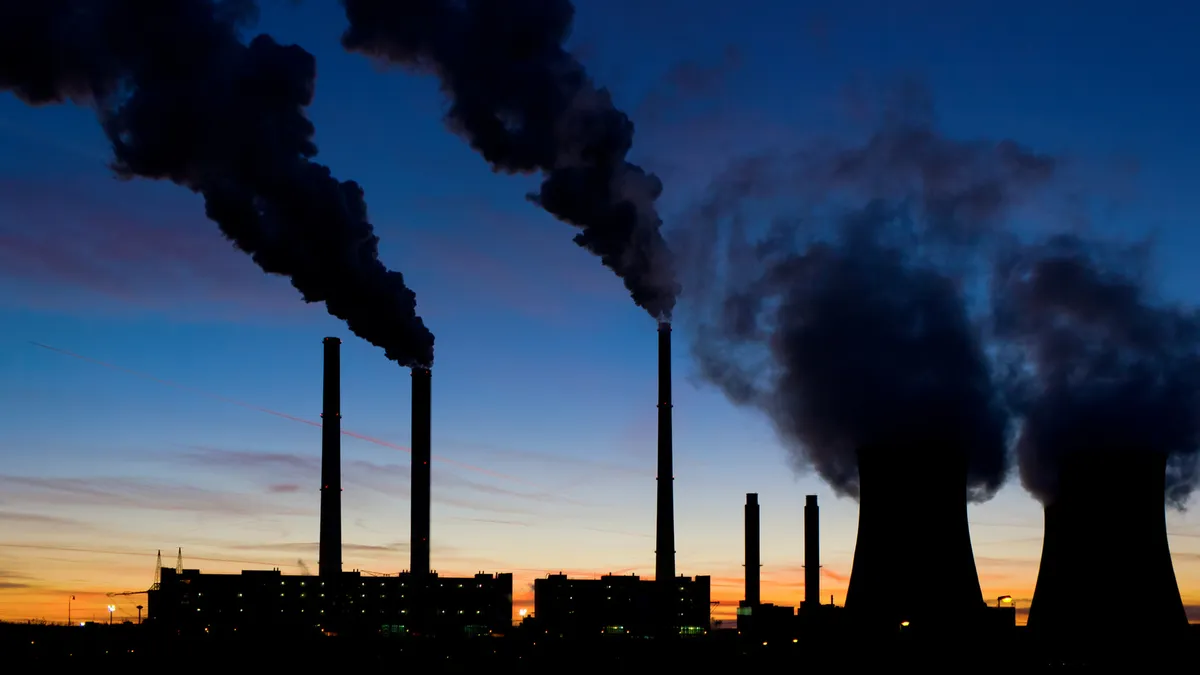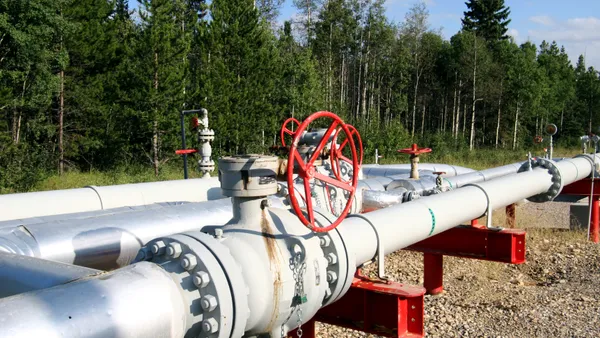Dive Brief:
-
GE says the "rapid decline" of a market for coal generation triggered company's Monday announcement that it would no longer participate in the construction of new coal plants.
-
The company's stock prices plummeted following the news, because the short announcement failed to detail whether the company has a plan to replace the lost coal revenue, according to William Blair & Company co-head of global industrial infrastructure Nick Heymann. But if the company hadn't left coal behind, he posits that things could be much worse. Coal, he predicted, "will become so onerous that everyone will sell utility stocks that have anything to do with coal."
-
GE will continue to fulfill existing contracts and continue to service coal-powered turbines, prompting some heat from environmentalists, despite overall praise.
Dive Insight:
Walking away from the coal market may have been necessary to steer clear of contracting markets and sour public sentiment, Heymann said, but the company's stock price could continue to suffer so long as its future trajectory remains unclear.
Heymann pointed to a confluence of factors that has accelerated the collapse of coal markets in recent months. Rising consumer concern about climate change had already eroded demand for fossil fuels, and now renewables have become cost-competitive, allowing economics and popular demand to align. Then COVID-19 reduced global energy demand, allowing utilities to shift their focus from expansion to the replacement of legacy assets.
"Coal's gone," Heymann concluded. "You have a very limited amount of nuclear. The only thing that is theoretically there is combined cycle for natural gas."
Indeed, while organizations such as shareholder advocacy group As You Sow heralded GE's announcement as one that "signaled meaningful change to its business by moving away from high-carbon technologies like coal," GE framed the decision as one of market necessity.
"In most parts of the world, the new build coal power plant market is characterized by overcapacity, market consolidation and rapid decline driven by an industry-wide move to lower carbon technology," a company spokesperson said in an email to Utility Dive. "Since 2015, the global market has seen an 85% cumulative decline in GW of new coal orders"
GE did not respond to questions regarding the sell-off prompted by Monday's announcement, nor to questions regarding criticisms from environmental organizations.
Han Chen, international energy policy manager for the the Natural Resources Defense Council, said she found GE's decision to continue servicing coal turbines "disappointing," and said the company seemed bound to repeat past mistakes.
"As they overestimated the growth and demand for coal in other markets, they're underestimating how quickly the U.S. is going to transition," she said. "They really over-invested in new coal and didn't transition, and I think they're still hanging on to hopes that these older plants just keep running forever."
Heymann agreed — to a point. The symbiosis between public opinion and economics means companies still associated with coal could end up wearing a "scarlet letter" in the near future. But as a practical matter, he said, GE must continue to support its product to maintain credibility with its customers.
"I think you have to run a very fine balancing act," he said, "because you're not going to have any customers if you don't support what they thought was a 30-year investment. No one's going to do business with you. It's not paint."
But like Heymann, Sierra Club spokesperson Marta Stoepker also raised questions about how GE's next steps after the transition from coal.
"We hope companies like GE, that have been in the coal business and benefited from the coal business, see where they can make investments right now so that companies don't go into bankruptcy but invest in the energy of the future," she said. "My hope is that GE will continue to get out of the coal business, but do what it can to ensure those who have been working in the coal business are not left behind. Their announcement today shows they are looking ahead, and I hope they continue to deepen that effort and support the people who have been keeping our lights on and risking their health to do so."














